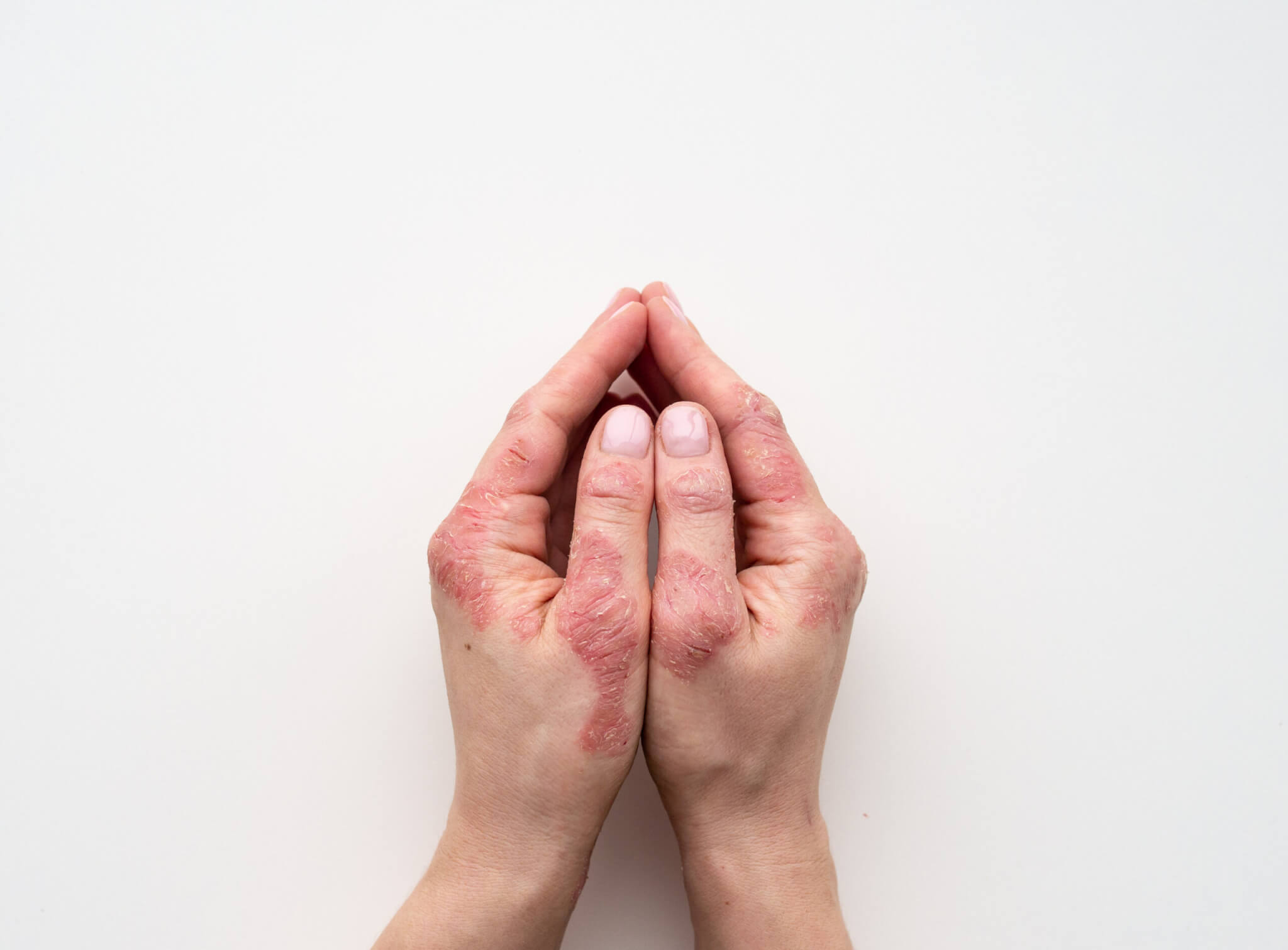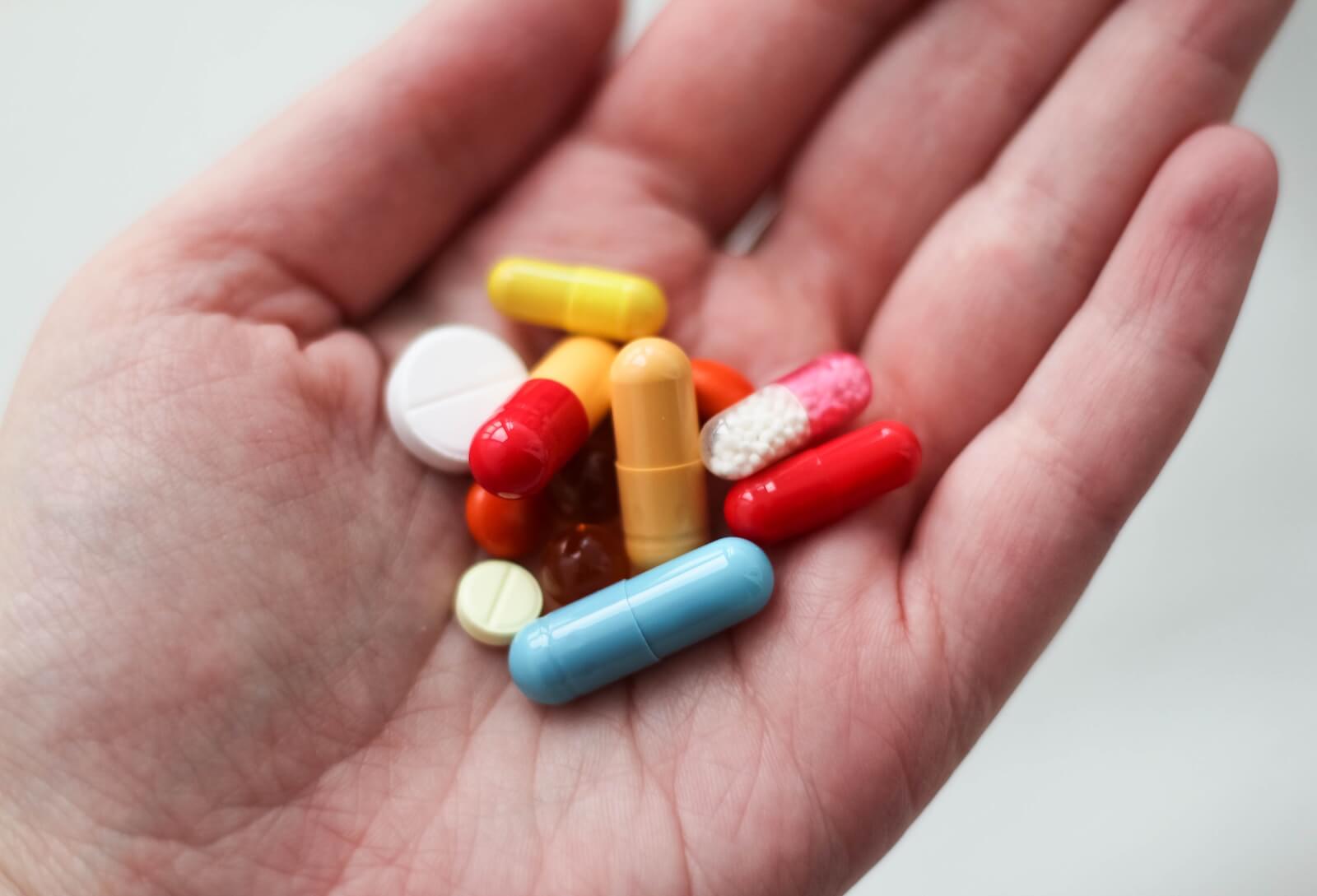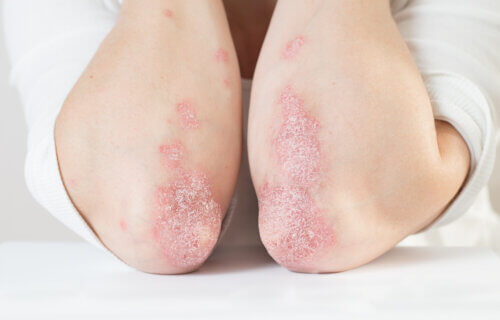Psoriasis is a chronic autoimmune disease involving the skin. Data from the 2020 census reveals that more than 7.5 million people over the age of 20 in the United States have psoriasis. A recent study suggests that psoriasis remains one of the most common immune-mediated diseases that affects adults in the U.S.
The immune system sends out signals targeting the body’s own tissues, speeding up the growth of skin cells. It can affect any part of the body and is often linked to other serious health conditions, such as heart disease, arthritis, diabetes, and depression.
About one-third of people with psoriasis have a family member with the disease. It is believed that to develop psoriasis, a person must have a combination of the genes and exposure to environmental triggers. Known triggers include:
- Stress: It can cause the disease to appear for the first time or aggravate existing psoriasis.
- Trauma to skin: Sunburns and scratches are known to trigger a psoriatic response. Prompt treatment can minimize a response.
- Medications: Some are known to trigger psoriasis. Lithium, used to treat bipolar disorder, and antimalarials, such as chloroquine and hydroxychloroquine, may cause a flare. Inderal, for high blood pressure, will worsen psoriasis. It is not known if other medications in the same class (beta blockers) have the same effect. Quinidine, a heart medication, and indomethacin, used to treat arthritis, may worsen psoriasis.
- Infection: Particularly, streptococcus (the bacteria which causes strep throat) can be a trigger. It is often associated with the first onset of guttate psoriasis in children.
- Some people report that allergies, diet, and weather trigger their disease.
The 5 types of psoriasis
A dermatologist assigns the diagnosis and its type by visual inspection. There are five types of psoriasis:
- Plaque psoriasis is the most common type of the disease, accounting for 80 to 90 percent of all cases. It is characterized by red patches with a silvery-white buildup of dead skin cells, appearing most often on the scalp, knees, elbows, and lower back. They are often itchy, painful, and may crack and bleed.
- Guttate psoriasis often starts in childhood or young adulthood. It is the second most common type of psoriasis. Lesions are red, scaly, small tear-drop shape spots.
- Inverse psoriasis shows up as very red lesions in body folds. It may appear smooth and shiny.
- Pustular psoriasis is characterized by white pustules – blisters of noninfectious pus surrounded by red skin.
- Erythrodermic psoriasis is a particularly inflammatory form that often affects most of the body surface. It is rare, occurring in three percent of people who have psoriasis. There is widespread, fiery redness and exfoliation of the skin, with severe itching, and often pain. This form of psoriasis can be life-threatening.
Psoriasis can be mild, moderate, or severe. Disease over less than three percent of the body is considered mild and constitutes about 80 percent of cases. Twenty percent of cases are moderate to severe. The severity is also measured by how much the disease affects a person’s quality of life. Psoriasis can have a severe impact on daily activities.

Prevention
Psoriasis is not preventable, but it may be helpful to avoid the triggers that an individual has found to aggravate his or her case.
Treatment
With mild disease, such as patches on the scalp, knees, elbows, hands, and feet, topical treatments are sufficient to manage the plaques. Moderate to severe disease usually involves a combination of treatments: topical, phototherapy, and systemic medications.
Topical treatments are medications applied to the skin. They slow down excessive skin cell reproduction and reduce inflammation. There are two active ingredients in topical preparations for the treatment of psoriasis: salicylic acid and coal tar. Salicylic acid is a peeling agent, which softens and removes psoriasis scales. Tar, derived from coal, can slow the rapid growth of skin cells and restore the skin’s appearance. It can also reduce inflammation and itching.
There are other products that contain substances such as aloe vera, jojoba, zinc parathion, and capsaicin, which are used to moisturize, soothe, remove scale, or relieve itching.
Keeping the skin lubricated is important to reduce redness and itching. Use fragrance-free products. Apply moisturizers after showering and washing your hands. Use moisturizing soaps. Limit lukewarm showers to 10 minutes or less. Baths with oil, oatmeal, Epsom salts, or Dead Sea salts can remove scale and relieve itching. Several ingredients for treating itch are calamine, hydrocortisone, camphor, diphenhydramine, benzocaine, and menthol. They can cause irritation and dryness.
Nonsteroidal topical treatments include Taclonex, Tazorec, Vectical, and Zithranol-RR. Topical steroids can be used for mild psoriasis.
Phototherapy involves exposing the skin to ultraviolet light at regular intervals. Treatments are carried out in a doctor’s office, psoriasis clinic, or at home with a phototherapy unit. The key to success is consistency.
The National Psoriasis Foundation does not support the use of indoor tanning beds as a substitute for medically supervised phototherapy. The Centers for Disease Control and Prevention (CDC) discourages the use of tanning beds and sun lamps.
Ultraviolet light B (UVB) and ultraviolet light A (UVA) treatments penetrate the skin and slow the growth of affected skin cells. The psoriasis may worsen temporarily before improving. Occasionally, temporary flares occur with UV light therapy. It can be combined with topical or systemic treatments, dramatically increasing the effectiveness of the systemic agents, which can allow lowering doses. UVA is used with the light-sensitizing medication – psoralens.
The excimer laser emits a high-intensity beam of UVB. The pulsed dye laser destroys the tiny blood vessels that contribute to the formation of plaques.
Systemic medications are taken by mouth in liquid or pill form, or given by injection. They include:
- Soriatane, a synthetic form of vitamin A.
- Cyclosporine, which suppresses the immune system.
- Methotrexate, initially used to treat cancer. It works by inhibiting an enzyme involved in the rapid growth of skin cells. Its use must be monitored very closely; it carries many warnings of adverse effects and side-effects.

Biologic drugs, also called “biologics,” are used for moderate to severe psoriasis. They are given by injection or intravenous (IV) infusion. Biologics work by blocking T cells, or by blocking proteins in the immune system that trigger the body to create inflammation. There are significant risks and side effects.
How to live with psoriasis
Stress can cause the immune system to send out chemicals that cause inflammation. In people with psoriasis, the immune system over-responds, sending out too much of the chemicals.
The itch of psoriasis can have a bigger impact on quality of life than visible lesions. It is a unique itch, often described as a burning, biting sensation. Some describe it as the feeling of being bitten by fire ants. At-home remedies for the itch include keeping skin moisturized. It reduces inflammation, itching, and helps the skin heal. Minimizing scaling and flaking is helpful. Cold showers and cold packs can help relieve itching.
Psoriasis can affect relationships in a number of ways. It can be difficult to talk to family and friends about the disease. Dating may be avoided due to poor body image. Genital psoriasis can have a significant impact on sex and intimacy.
Depression is the most common disease associated with psoriasis. It can have a significant impact on quality of life. People with psoriasis may be more likely to have suicidal thoughts and attempts. A person with the symptoms of depression should be seen by a physician. The symptoms include:
- Inability to sleep
- Inability to get out of bed
- Loss of energy
- Lack of interest in things previously enjoyed
- Inability to focus
Working with psoriasis and psoriatic arthritis can be challenging. Meeting with a supervisor to discuss how psoriasis may affect job performance is helpful. It may be necessary to invent ways to perform routine work tasks. Learn about disability benefits and eligibility requirements before they become necessary.
Psoriasis patients have an increased risk of developing additional autoimmune diseases. The increased risk for various other diseases has been associated with an overactive immune response. Further research to refine the common autoimmune elements should lead to the development of more tailored therapies for all autoimmune disorders.
You might also be interested in:
- More vitamin D may help ease severe cases of psoriasis
- Why does skin feel tight after using beauty products? Scientists have an answer
- Best Skincare Tips For Skin Of Color: Top 5 Guidelines, According To Doctors


Vitamin D to 50 ng/ml.
Duh!
If you haven’t raised your blood level to this you WILL NOT get the full benefit.
If your doctor warns of toxicity RUN!!!
LOL it’s rarer than NSAID o.d. 120,000 – 600,000 X. Literally.
Remember the prescription medication you get for the condition is a vitamin D analog chemically tweaked drug.
Do not suffer needlessly. Look at the research !!!